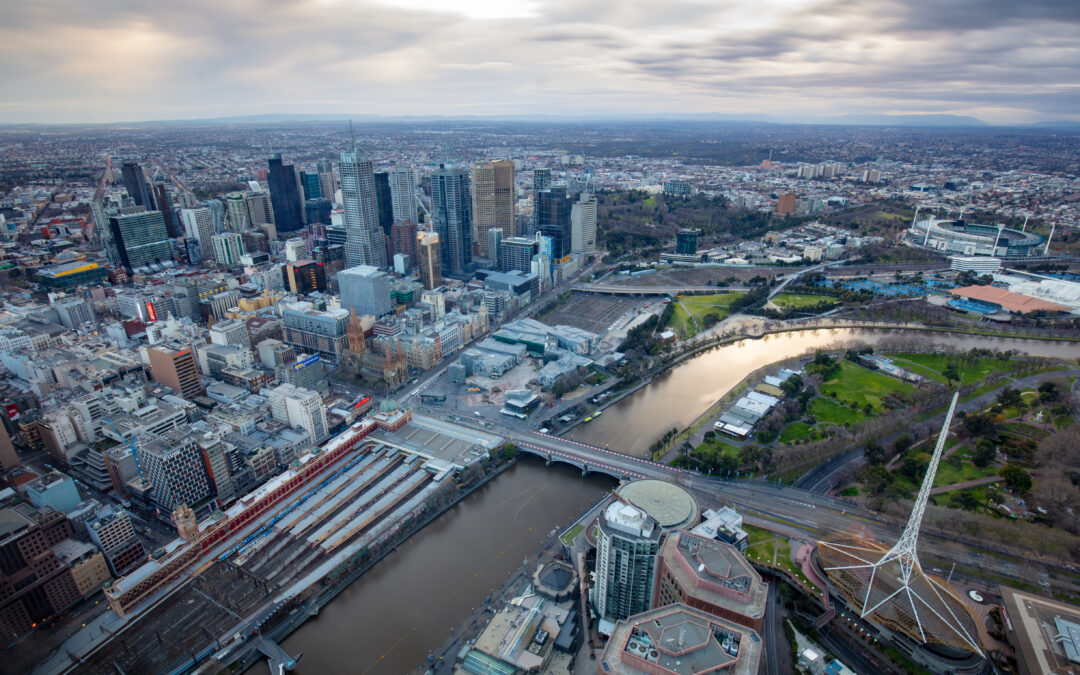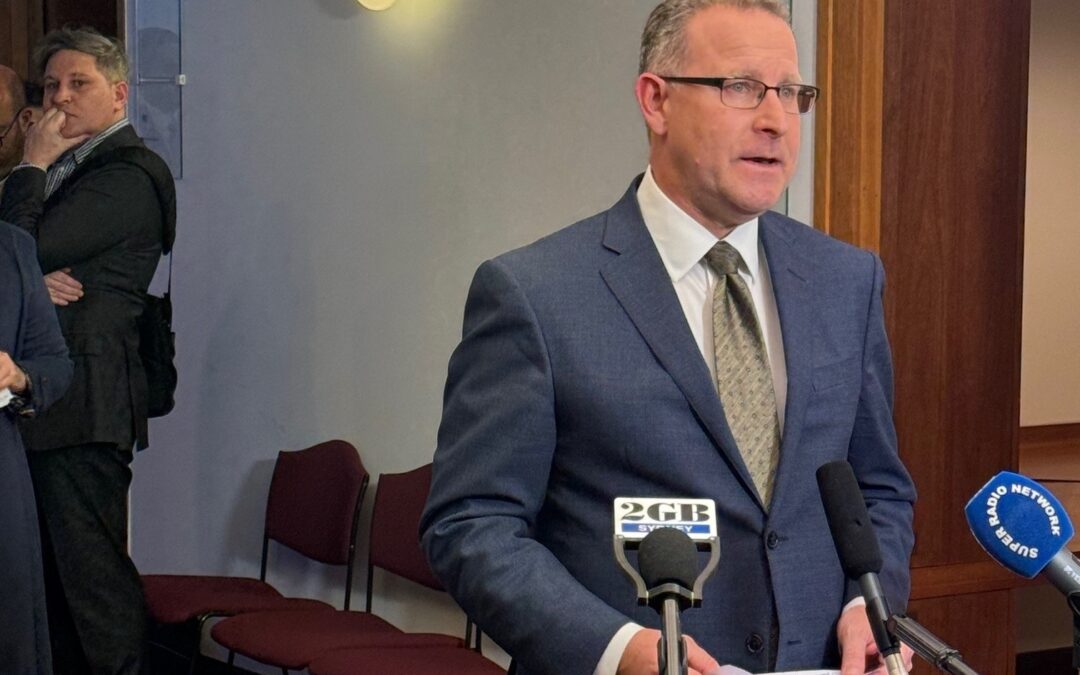


ACCI responds to Annual Wage Review outcome
The Australian Chamber of Commerce and Industry acknowledges today’s decision by the Fair Work Commission to raise the national minimum wage and modern award minimum wages by 3.75 per cent.
“This tests the acceptable limits for businesses. The outcome is slightly above current inflation and well over the Reserve Bank’s target range for inflation,” ACCI chief executive officer Andrew McKellar said.
“This decision is not in line with the trajectory needed to shore up the Australian economy, but it does not pose a significant inflation threat so long as productivity is addressed.
“Over the past year, productivity has been flat at best. For the outcome of 3.75 per cent to be justified, it is essential that there is renewed growth in productivity as an urgent priority. This must be central to bargaining at an enterprise level.
“This decision is further evidence of wages being de-linked from underlying productivity, which is not an economically prudent approach.”
The Fair Work Commission has ignored the extreme claims of the union movement.
“This decision is a repudiation of the irresponsible five per cent demand from the ACTU,” Mr McKellar said.
“Such an increase would have dangerously burdened the economy. It posed an unacceptable risk to inflation, and would have seen interest rates higher for longer.
“Bringing inflation under control is central to the economic well-being of all. So long as inflation remains elevated, the buying power of every dollar diminishes.
“Small businesses are grappling with significant increase costs as a result of the increased compliance burden and wages remain a concern in such an environment.
“It is inevitable that businesses will need to pass increased costs through to consumers. Many small businesses are in a position where they simply cannot absorb any more.
“Regulatory costs are going to increase further the impact of the governments industrial relations changes continue to flow through to the economy in such an environment business will need to pass on additional costs.”

New company tax conversation is welcome
The call from Industry Minister Ed Husic for a new discussion about corporate tax rates is a welcome development, the Australian Chamber of Commerce and Industry said today.
“Australian businesses will embrace the need to reconsider corporate taxes. Lowering the corporate tax rate or introducing investment allowances are critical measures that can drive business investment, spur economic growth and ultimately benefit all Australians,” ACCI chief executive officer Andrew McKellar said.
“Businesses need the ability to free up capital and invest, especially given the sluggish productivity growth over much of the past decade.
Corporate tax reform or investment allowances would incentivise businesses to upgrade technology, enhance productivity and create jobs.
“Ensuring that businesses can invest in growth while also improving wages on the back of productivity gains and job security is the right approach.
“ACCI looks forward to engaging constructively with the government on this crucial issue and we thank the government for raising it. An approach that enhances productivity and ensures sustainable economic growth would be a win-win for all Australians.”

Budget treads a narrow path for the short term
The federal government is treading a narrow path to tackle short-term demands, but 2024-25 Federal Budget prompts more questions about taming inflation and the medium-term sustainability of spending.
“The projection of a surplus for the current financial year is a positive. However, over the next four years, there appears to be little prospect of substantial progress towards further budget repair,” ACCI chief executive officer Andrew McKellar said.
“Over this period additional spending means the budget deficit and net debt will both be higher than previously forecast.
“While the impact of the Budget on inflation is hard to assess, it would be difficult to accept the assertion that it materially reduces underlying cost or price pressures.
“Business is not asking for the size of the government to grow. This can only lead to higher costs and more taxes.”
Small business
“This year’s Federal Budget delivers slim pickings for small businesses,” Mr McKellar said.
“While ongoing energy bill relief is welcome, and the extension of instant asset write-off will help some businesses, there are limited measures to address the surging impact of red tape on small business.
“Incentives aimed at encouraging investments from businesses, especially small businesses, are crucial during a time of economic fragility.
“Small business owners are under significant pressure due to increasing regulatory complexity, rising business costs and worker shortages. Small business owners will find very little comfort or reassurance in this Budget.”
Skills and apprenticeships
“Business investment in training and the skills of their employees is a vital pathway to increased productivity. Many small and medium-sized businesses are keen to hire apprentices as a means of increasing their access to skills,” Mr McKellar said.
“The partial extension to support for the apprenticeship system over the next 12 months while a strategic review is completed provides some breathing space. However, it is unclear that this support will be sufficient to arrest the current downward trend in apprenticeship commencements.”
Future Made in Australia
“The much-anticipated A Future Made in Australia strategy provides a targeted but modest set of initiatives that focus on advancing the transformation to net zero emissions and other areas of business investment,” Mr McKellar said.
“A net additional investment of $22.7 billion in funding is, in context, not of a magnitude that will fuel further claims of a government picking winners. At the same time, this level of investment raises the question of whether A Future Made in Australia is the game-changer it purports to be.”
For more information:
Ashley Gardiner | Director, Media and Communications
P | 02 6270 8020
E | media@acci.com.au

Lukewarm Budget for travel and tourism
This Budget has delivered little for Australian travel and tourism as it continues to recover from the impact of COVID-19 restrictions.
“Australian travel and tourism has rebounded well from the pandemic restrictions but there is still work to do,” Australian Chamber – Tourism executive chair John Hart said.
“The latest ABS data released on Budget day shows that short-term visitor arrivals in March were still 9 per cent below pre-pandemic levels for the same period. More support in this Budget was critical.
“While we welcome sustained funding for Tourism Australia, more is needed to attract the travellers we need to and to assist them in a highly competitive international tourism market.”
The Budget was also a missed opportunity to improve the passenger facilitation process.
“Australia continues to rank poorly in competitiveness in the area of passenger facilitation in ports, which will affect our attractiveness as a destination and impact our ability to generate visitor spend,” Mr Hart said.
Australian Chamber – Tourism welcomes improvements to visa processes and access and $8.1 million to administer the Approved Destination Status scheme to support Chinese tourists travelling to Australia in guided groups.
“This funding will bring this crucial cohort of travellers back to Australia,” Mr Hart said.

Vital role for gas in transition to net-zero
Australian businesses will be relieved by the federal government’s recognition that gas has a vital role in the nation’s transition to net-zero.
A comprehensive strategy is needed to stabilise the gas market and provide additional certainty for potential investors, whose confidence has been softening in recent years, Australia’s largest and most representative business network said today.
“The Future Gas Strategy is sensible and reasonable in its approach. It indicates the government is committed to the role of gas in the energy transition,” ACCI chief executive officer Andrew McKellar said.
“Gas is essential for the future of manufacturing and value-adding in Australia and will play a crucial role in increasing domestic manufacturing to achieve ‘A Future Made in Australia’.
“A competitive gas market is necessary to ensuring affordable, reliable and secure energy for Australia to 2050 and beyond.”
“The warning bells have been sounding for long enough. There could be severe shortages of gas as early as next year.
“While the strategy will accelerate the access to gas, the government must also take its foot off the brake by streamlining and simplifying approval processes for gas exploration and development.
“The federal government must reiterate to the states the important role of gas in the energy transition and work with them to remove regulatory barriers and access to new gas reserves.
“In the longer term, reducing gas-related emissions must happen to meet the net zero by 2050 target. We welcome the recognition of carbon capture and storage as an important component of the strategy.”
Australia’s LNG exports also have a central role in regional energy security and are a significant contributor to Australia’s trade balance and GDP.
“It is important that we continue to supply gas to maintain strong international relationships and trade reputation, as well as to maintain the confidence of international investors in Australia,” Mr McKellar said.